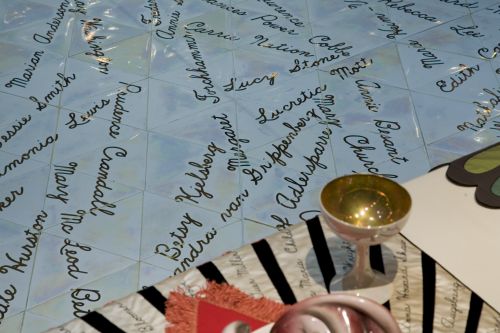Luisa de Carvajal
b. 1566, Jaraicejo, Extremadura, Spain; d. 1614, London
The Catholic missionary Luisa de Carvajal was born into a noble Spanish family. Her childhood was traumatic. Orphaned at the age of six, she was placed in the care of her great-aunt, María Chacón, governess to the crown prince, and together they lived in the royal palace at Madrid. When Chacón died in 1576, Luisa became the ward of her maternal uncle, Francisco Hurtado de Mendoza, a prominent figure in Spanish politics. While Luisa received a well-rounded education in her new home, she was also subjected to sadistic abuse by Hurtado, in the name of “purifying” her. Freed by her guardians’ deaths in 1592, Luisa joined a community of religious women near the Jesuit college, took a vow of poverty, and wrote poetry. Relatives sued for her inheritance, a legal battle that dragged on for nine years and forced her to move to Valladolid, where she wrote a spiritual autobiography. Luisa had a strong missionary bent, and when Catholic priests were expelled from England in 1604, she set out for London to assist her persecuted brethren. Operating under the protection of the Spanish ambassador, she visited imprisoned Catholics, gave others refuge in her home, openly proselytized, and founded a mission, the Society of the Sovereign Virgin. Her activities enraged authorities and she was twice arrested. The second time, in 1613, the Spanish ambassador secured her release, but she died three days later of the heart condition that had plagued her for many years.

Related Place Setting
Related Heritage Floor Entries
- Maria Agnesi
- Marianna Alcoforado
- Anna Amalia
- Anne Askew
- Mary Astell
- Laura Bassi
- Anne Baynard
- Aphra Behn
- Helen Cornaro
- Isabela Czartoryska
- Anne Dacier
- Maria de Agreda
- Marie le Jars de Gournay
- Bernarda de la Cerda
- Marie de Miramion
- Luise Gottsched
- Jeanne Marie Guyon
- Susanna Lorantffy
- Bathsua Makin
- Lucretia Marinelli
- Charitas Pirckheimer
- Bridget Tott
- Barbara Uttman
- Glueckel von Hameln
- Hortensia von Moos
- Maria Antonia Walpurgis
- Hannah Woolley